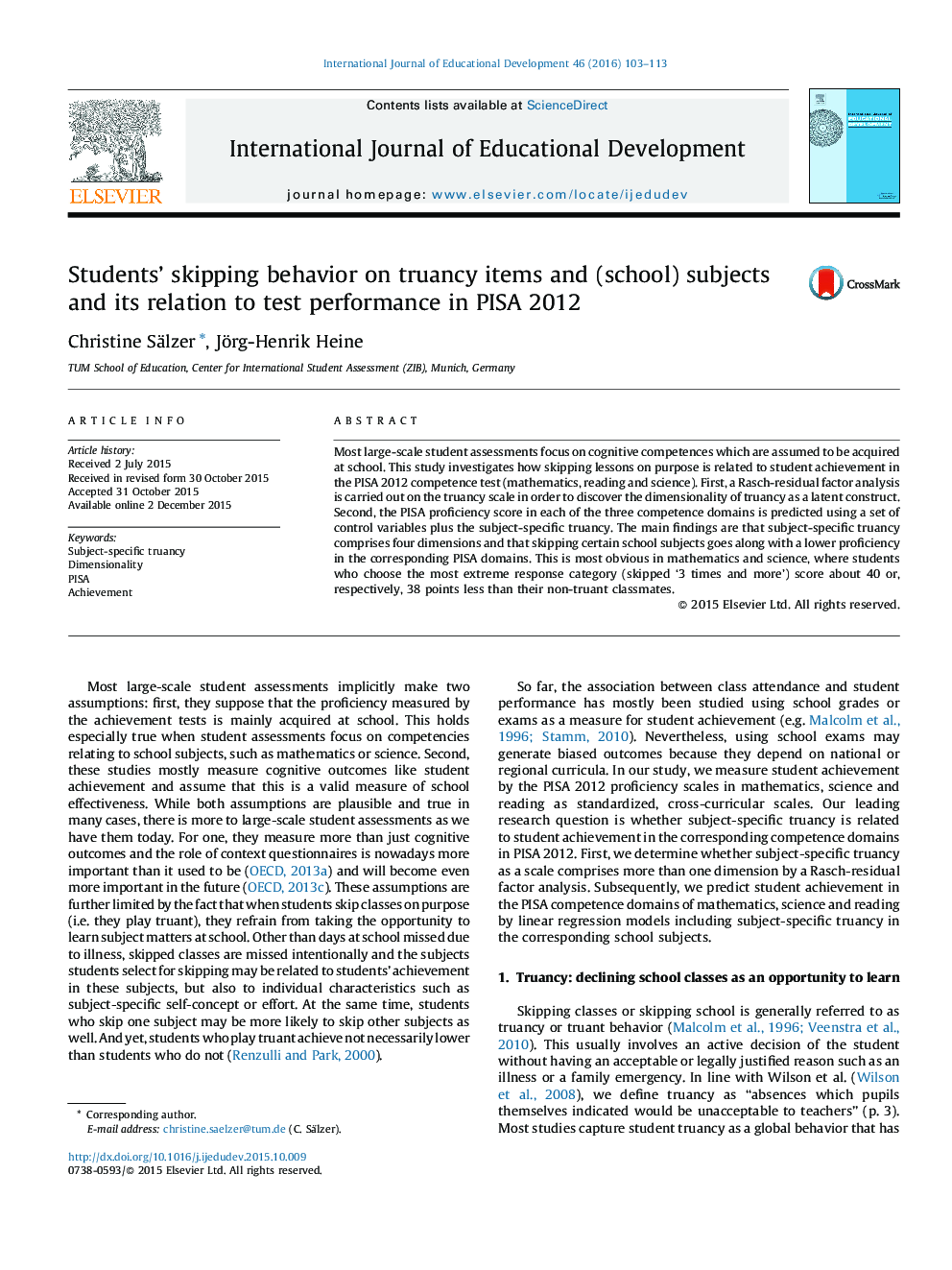| Article ID | Journal | Published Year | Pages | File Type |
|---|---|---|---|---|
| 6841255 | International Journal of Educational Development | 2016 | 11 Pages |
Abstract
Most large-scale student assessments focus on cognitive competences which are assumed to be acquired at school. This study investigates how skipping lessons on purpose is related to student achievement in the PISA 2012 competence test (mathematics, reading and science). First, a Rasch-residual factor analysis is carried out on the truancy scale in order to discover the dimensionality of truancy as a latent construct. Second, the PISA proficiency score in each of the three competence domains is predicted using a set of control variables plus the subject-specific truancy. The main findings are that subject-specific truancy comprises four dimensions and that skipping certain school subjects goes along with a lower proficiency in the corresponding PISA domains. This is most obvious in mathematics and science, where students who choose the most extreme response category (skipped '3 times and more') score about 40 or, respectively, 38 points less than their non-truant classmates.
Keywords
Related Topics
Social Sciences and Humanities
Social Sciences
Development
Authors
Christine Sälzer, Jörg-Henrik Heine,
